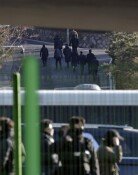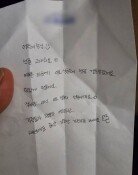Revision of Criminal Procedure Act leaves loophole in court
Revision of Criminal Procedure Act leaves loophole in court
Posted September. 22, 2023 08:20,
Updated September. 22, 2023 08:20
On December 20, 2010, at the Seoul Central District Court, Criminal Agreement Division 22, the first trial of Han Myeong-suk, former Prime Minister of South Korea, who was indicted on charges of receiving illegal political funds amounting to 900 million won from Han Man-ho, the head of a construction company, took place. At the time, I was a member of the legal reporting team and covered the first trial of former Prime Minister Han at the courthouse.
During the second trial held on this day, Han, the head of the construction company, reversed his earlier statement made during the prosecution's investigation, stating, "I have never provided any political funds to former Prime Minister Han."
The courtroom was thrown into chaos. Sighs erupted from supporters of former Prime Minister Han, and Kim, who was also prosecuted alongside former Prime Minister Han as an associate, fainted and was taken away in an ambulance. After the presiding judge struck his gavel several times, the courtroom finally returned to order.
Former Prime Minister Han's defense attorney questioned, "Why did you change your statement after eight months?" Han replied with emotion, "Because of my false statement, the person I respected, former Prime Minister Han, lost the Seoul mayoral election and was even indicted. I felt so guilty that I even considered ending my own life, but I couldn't bear the thought of her carrying the stigma. So, I waited for this day."
In the first trial, former Prime Minister Han was acquitted. However, the prosecution argued in court that Han's "testimony in court" did not align with the facts as presented in the "prosecution's statement" and charged Han with perjury. Despite Han's change of testimony, the appellate court ultimately ruled, "Even if Han's testimony changed, other evidence still supports the charges." As a result, former Prime Minister Han was sentenced to two years in prison, and the Supreme Court upheld the initial ruling.
Thirteen years later, a similar yet different scenario is unfolding in the trial related to the alleged payments to North Korea by former Gyeonggi Province Vice Governor Lee Hwa-young. Lee had initially stated during the prosecution's investigation that he had reported the payments to the leader of the Democratic Party, Lee Jae-myung, but recently, in a statement submitted to the court, he reversed his position, saying, "I made some false statements under continuous pressure from the prosecution. I never reported anything to Lee."
If Lee maintains his reversed testimony, the prosecution's statement becomes a mere scrap of paper. In the past, even if the defendant denied the prosecution's statement during the trial, it could still be accepted as evidence if certain legal requirements were met. However, with the amendment to the Criminal Procedure Act in January of last year, the statement can only be admitted as evidence if the defendant acknowledges it during the trial. The prosecution claims that the defendant's team attempted to manipulate the statement to neutralize it and hinder investigations against Lee Jae-myung, constituting "obstruction of justice."
The trial related to the payments to North Korea, which had already been delayed for over a month due to conflicts with Lee's counsel and issues surrounding the appointment of defense attorneys, is now back to square one due to the reversal of testimony and concerns of obstruction of justice. It has been six months since Lee was indicted for violating the Foreign Exchange Transactions Act with no progress in the investigation. The intention to prioritize court testimonies and implement a trial-centric approach is commendable; however, if prosecutorial interrogations result in the loss of evidentiary value so easily, trials could become endlessly protracted, and the timely revelation of the substantive truth could be delayed. As the system has been in effect for two years now, it is high time for the National Assembly and the government to come together and consider potential institutional improvements.







